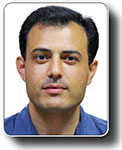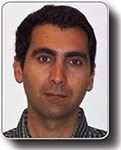Liquid loading in wellbores and its effect on cleanup period and well productivity in tight gas sand reservoirs
Hassan Bahrami A , M Reza Rezaee A , Vamegh Rasouli A and Armin Hosseinian ACurtin University of Technology
The APPEA Journal 50(1) 559-566 https://doi.org/10.1071/AJ09033
Published: 2010
Abstract
Tight gas reservoirs normally have production problems due to very low matrix permeability and significant damage during well drilling, completion, stimulation and production. Therefore they might not flow gas to surface at optimum rates without advanced production improvement techniques.
After well stimulation and fracturing operations, invaded liquids such as filtrate will flow from the reservoir into the wellbore, as gas is produced during well cleanup. In addition, there might be production of condensate with gas. The produced liquids when loaded and re-circulated downhole in wellbores, can significantly reduce the gas production rate and well productivity in tight gas formations.
This paper presents assessments of tight gas reservoir productivity issues related to liquid loading in wellbores using numerical simulation of multiphase flow in deviated and horizontal wells. A field example of production logging in a horizontal well is used to verify reliability of the numerical simulation model outputs. Well production performance modelling is also performed to quantitatively evaluate water loading in a typical tight gas well, and test the water unloading techniques that can improve the well productivity.
The results indicate the effect of downhole liquid loading on well productivity in tight gas reservoirs. It also shows how well cleanup is sped up with the improved well productivity when downhole circulating liquids are lifted using the proposed methods.

Hassan Bahrami is a PhD candidate in the Department of Petroleum Engineering at Curtin University of Technology in Perth, Australia. He has focussed on tight gas sand reservoirs damage and productivity. Prior to Curtin University, he worked for Schlumberger Data and Consulting Services (DCS) as a borehole reservoir engineer (2003-9) and Tehran Energy Consultants as a reservoir engineer (2001-3). Hassan holds a BSc in chemical engineering from Persian Gulf University, and a MSc in reservoir engineering from Sharif University of Technology, Tehran, Iran. Hassan.Bahrami@postgrad.curtin.edu.au |

M. Reza Rezaee is an associate professor in the Petroleum Engineering Department of Curtin University of Technology. He has a PhD degree in reservoir characterisation (Adelaide University) and has over 20 years experience in academia and industry. During his career he has been engaged in several research projects supported by national and international oil companies and these commissions, together with his supervisory work at various universities, have involved a wide range of achievements. His research has been focussed on integrated solutions for reservoir geological characterisation. He has utilised expert systems such as artificial neural networks and fuzzy logic and has introduced several new approaches to estimate rock properties from log data where conventional methods fail to succeed. He has focussed on unconventional gas including gas shale and tight gas sand studies. R.Rezaee@curtin.edu.au |

Vamegh Rasouli is a Chartered Professional Engineer (CPEng) and is a registered engineer with the National Professional Engineers Register (NPER) of Australia. After completing his PhD in 2002 from Imperial College, London, Vamegh took up the position of assistant professor in the Department of Petroleum Engineering at Amirkabir University of Technology (Iran). In 2006 Vamegh joined the Department of Petroleum Engineering at Curtin University as a senior lecturer to add support to the delivery of the Department’s Master of Petroleum Well Engineering degree, and to carry out research in his specialist area of wellbore stability, sanding, hydraulic fracturing, etc. He established the Curtin Petroleum Geomechanics Group (CPGG), and he supervises five PhD students and number of Masters students. CPGG has completed a number of successful research and consulting projects. Vamegh is also a consulting engineer on various geomechanics related projects with Schlumberger’s Data and Consulting Services (DCS) in Perth. V.Rasouli@curtin.edu.au |

Armin Hosseinian is a PhD candidate in the Department of Petroleum Engineering at Curtin University of Technology in Perth, Australia. He has focussed on fluid flow simulation in natural fractures. Prior to Curtin University, he worked for National Iranian Oil Company as a well engineer and Tehran Metro Company as a mining engineer. Armin holds a MSc in mining engineering from Azad University, and a BSc in mining engineering from Shahid Bahonar University, Kerman, Iran. Armin.Hosseinian@postgrad.curtin.edu.au |


